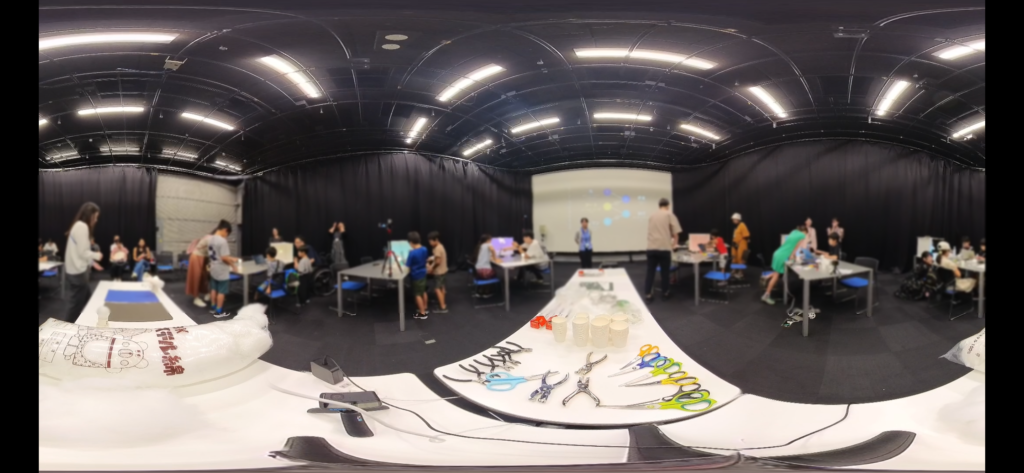
On August 2, we participated in a workshop for children held at Panasonic Center Tokyo with members of the project subject “Creative Learning Design. It has been 3 years since I have attended a face-to-face workshop for children. It’s been a long time so far😅.
This time, elementary school children will experience making light objects using a device called ILLUME, which can control light with a program developed by Panasonic.
Remote workshops for children have resumed since last year. Face-to-face classes and seminars at the university have also resumed since April. However, I was still able to experience the joy of workshops working with students again in a slow and steady physical way.
Since the end of the workshop, I have been thinking about what the joy of workshops means to me. When I design a workshop and see students seriously enjoying themselves in the workshop, I feel joy as a workshop designer.
But perhaps an even greater joy is being able to be involved as a facilitator in a community that shares in the activities of a workshop.
I was just sorting through the recordings of lectures for students conducted by the department and discovered an audio recording of “The Meaning of Learning” given by Prof. Yutaka Saeki in October 1997. In his lecture, Prof. Saeki also said,
Learning is a journey of self-discovery, of becoming a whole and good self through participation in a community of practice.
Indeed, not only the students as participants, but I myself have learned a lot from the children and other facilitators through my own participation in the community of practice that is the workshop.
In this light, I feel that the workshops I have conducted in the past have focused too much on the accomplishment of the activity, such as the completion of a work of art. Having a clear goal for both participants and implementers makes the workshop itself easier to understand. On the other hand, it may also lead to overlooking the various learning opportunities that occur during a workshop.
Of course, I do not mean to denigrate school education, but I feel that my own workshops are not yet far enough away from the model of school education in which lessons are designed with clear goals to be achieved.
In a manner of speaking, there is a theme to the activities, but what I have realized in thinking about how to realize and design workshops as a community of practice that is possible because of all the people who gather there, including the children on the day of the workshop, the facilitators, and possibly the observers, is that I have been thinking about how I can my own learning through my participation in the Workshops.
Another great discovery was that there may be facilitation for children that I can do because I am a wheelchair user. I feel that being able to speak to them from the same or a slightly lower position than the students, I can speak to them in a natural way that is different from the way I used to speak to them while bending down.
Hmmm, I still like the face-to-face workshop with the students and the facilitators. I would like to thank everyone who participated in the workshop.
